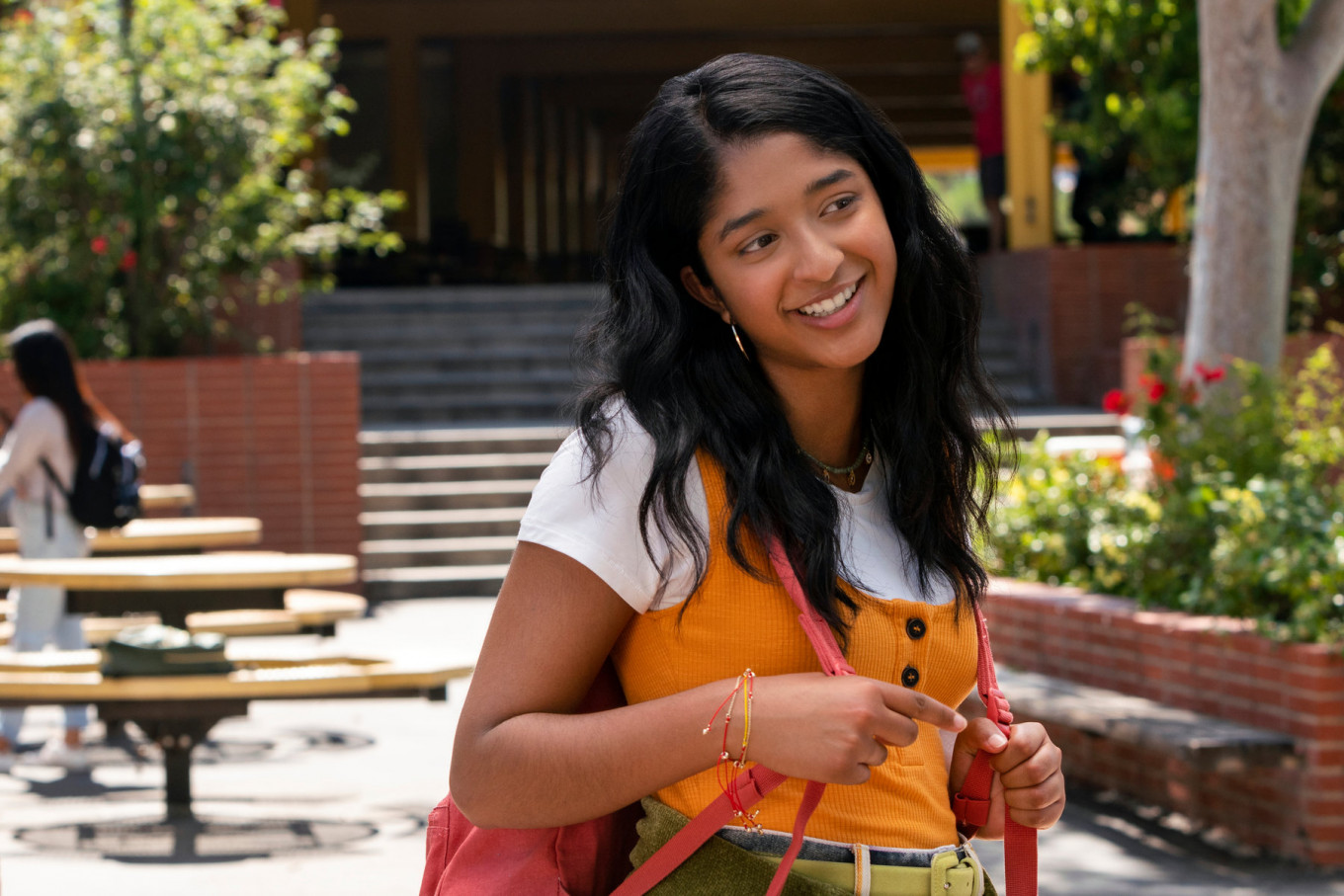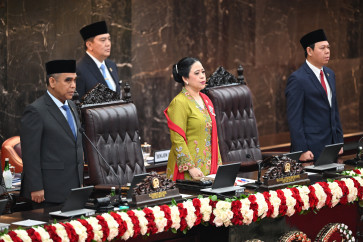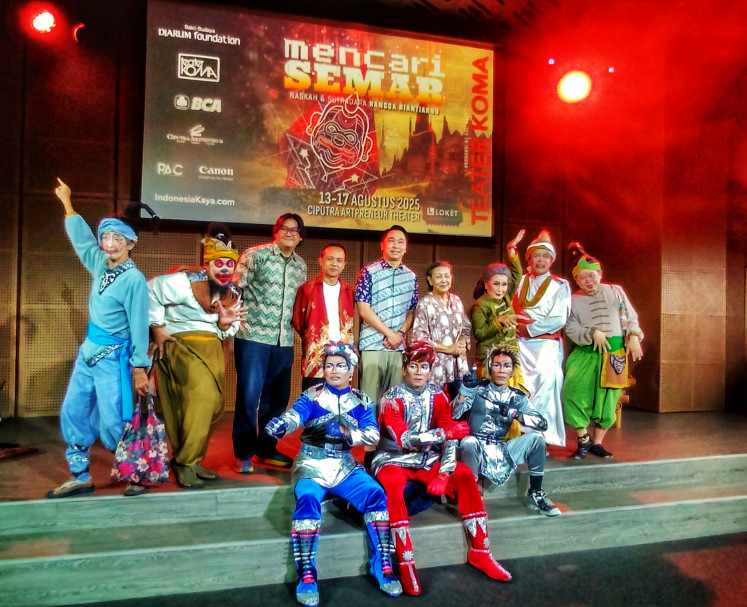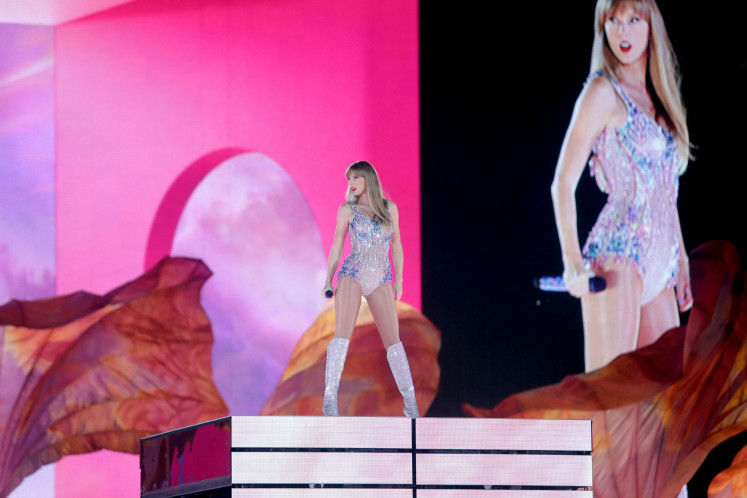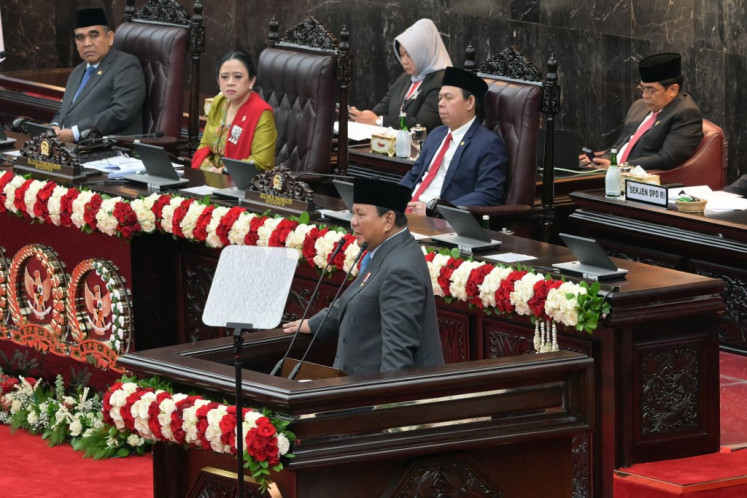Popular Reads
Top Results
Can't find what you're looking for?
View all search resultsPopular Reads
Top Results
Can't find what you're looking for?
View all search results'Never Have I Ever': Four reasons why you should watch it right now
The series Never Have I Ever shows how we should embrace who we are.
Change text size
Gift Premium Articles
to Anyone
N
ever have I ever. Everybody knows that game, the purpose of which is to force you to be honest despite being faced with the most humiliating situations.
But the Netflix series Never Have I Ever is not about that game at all. It's a comedy and coming- of-age story inspired by Mindy Kaling's childhood.
As one of the cocreators, Kaling translates that game into an entertaining 10-episode series following a first-generation Indian girl named Devi (Maitreyi Ramakrishnan) dealing with the truths in her life. Having her dad die due to a heart attack in her orchestral recital, she became so traumatized that her leg became temporarily paralyzed. Having regained her mobility back, Devi decides to rebrand her image in her sophomore year by getting herself a “hot” boyfriend.
It's a story about an Indian-American teenager attempting to find the best time of her life while trying to overcome the unresolved grief of losing her father. But it's also about a clash of culture between a teenage daughter and her very conservative Indian mother, Nalini (Poorna Jagannathan). And between them, there's also the beautiful Kamala (Richa Moorjani) living in their house who's finishing her post-grad degree at Caltech and has to deal with an arranged marriage.
There are four main reasons why this series deserves all the attention.
1. Culturally specific, universally relatable
We can instantly see that each character embodies such culturally specific archetypes. One can argue about the importance of having South Asian representation in popular culture, but that's not even the strongest reason why you should stream it in one sitting. It is because how these characters are designed.
When we detach the culture, skin tone, or the accents label from the characters, we see ourselves in them. Underneath over-the-top rebellious and overachiever Devi, we can see a girl who misses her father and longs for her first love. Underneath Nalini, we can see a mother trying to connect with her daughter in spite of her controlling parenting style.
The culture is not just a gimmick, it nurtures the conflict. On a larger scale, we see how individual choices often clash with collective values shared from generation to generation, like having a book blessed by a priest to help us study better or only being wed to an Indian, even when you're living in the United States to preserve your heritage. Everyone might not be able to relate with the aforementioned examples but the show captivates the right amount of humanity.
Case in point, during the episode “Never Have I ever.... have sex with Paxton”, Devi is dealt with whether or not she should commit non-romantic sexual relations with the hottest boy in school. Or in the episode of “Never Have I ever... felt super Indian” Kamala learns of the ramifications of not getting married to an Indian man in an Indian-American society.
The choices and reflections of these characters are what make us not only root for them but we become them.
Read also: 'Parasite' star Choi Woo-shik talks about new film 'Time to Hunt'
2. It gains so much organic attention despite it having two disadvantages
This show not only has one disadvantage, but two. Not only does it have a minority female protagonist but its sub-genre is also classified to be niche and not money-making.
Female-centered coming-of-age films, like Eighth Grade (2018) and Lady Bird (2017) were praised among critics but they're not considered box office darlings. Films portraying a clash of cultures, like The Farewell (2019) was also praised among critics circle but managed to be screened in theaters for six months. That's an achievement. Yet, it's not even nominated in the Oscars this year because most voting members didn't consider watching it.
Hollywood tends to do this to films/shows centering men/women of color. Kumail Najiani's semibiographical comedy The Big Sick (2017) might have been huge among critics and had a US$56,411,585 gross income with only $5 million budget, but those numbers were not as big as other rom-coms, like, It's Complicated (2009) , which grossed $219,103,655 worldwide. That number is four times bigger and that is a rom-com portraying 50-year-old divorcees.
There's always this glass in the entertainment industry, but the fact that this shows have two barriers and still be the center of the conversation, this is how Never Have I Ever soars.
3. Powerful character development
One of the most interesting parts of the show is the main character, Devi, who is nowhere from perfect. She's annoying, she's over the top, she's rebellious, but she definitely stole our heart. Especially when she lost something that we could lose in the future--our family member.
Flaws in characters make them more accessible, and vulnerability makes them less distant than us. That's why a talented, yet annoying Jewish girl longing for first love, like Rachel Berry from Glee or a wise columnist whose romance is not as good as her sex life, like Carrie Bradshaw from Sex and The City somewhat likable.
Devi's trials and tribulations in friendship and love are also the main attractions of this show. How her rebellious character and over the top dramatic response may exaggerate what teenagers could do and what we adults could have done. How we could secretly hope our crush notice us, and how we wish we could have done and said whatever Devi has to say to her teachers and parents are not only funny but true.
Read also: 'Extracurricular' raises questions about teenage crimes
Yet, the most complex relationship Devi has to overcome is probably dealing with her mother. Greta Gerwig's Lady Bird (2017) is probably the closest film that manages to expose the raw and mother-daughter connection. Mother-daughter relationship doesn't always have to be soft and feminine.
Through Devi and her Mom's series of fights, we see strong-willed women facing each other. Their relationship is drawn through layered of emotionality that makes their character way more humane.
4. Embracing ourselves
The series captures how we should confess who we really are and embrace it with open arms. Devi and her mom struggle so hard to act normal when in reality they haven't processed their own grief and constantly deny it. Other characters like the hot boy Paxton, nemesis Ben, and Devi's two sidekicks also deal with humility and disappointment. Only when they fully embrace who they really are do they find contentment.
Unlike the game, the humility this series capture is essential for us to fix what; wrong and embrace what's already right: their crush, their sexual orientation, and their aspirations on who they really want to be. There's nothing more liberating for anyone to be reminded with such value while constantly entertained and laugh and cries.
All in all, Never Have I Ever does not only examine how complicated being a modern teenager in America (or any country, really); it also encapsulates every confessions and humility that we have done in the past and take it with pride.
It's not just Devi's story, it's ours. (kes)

